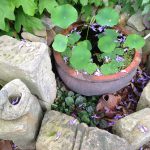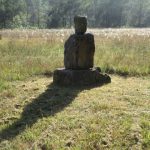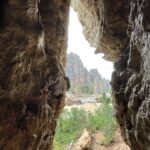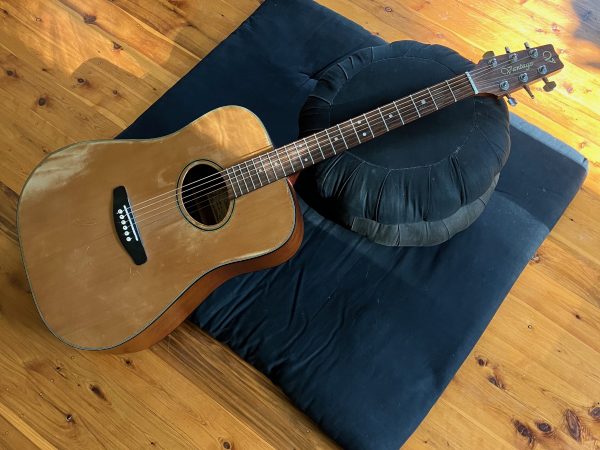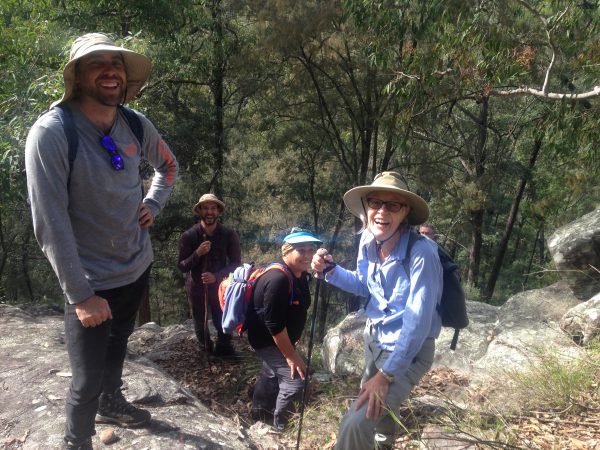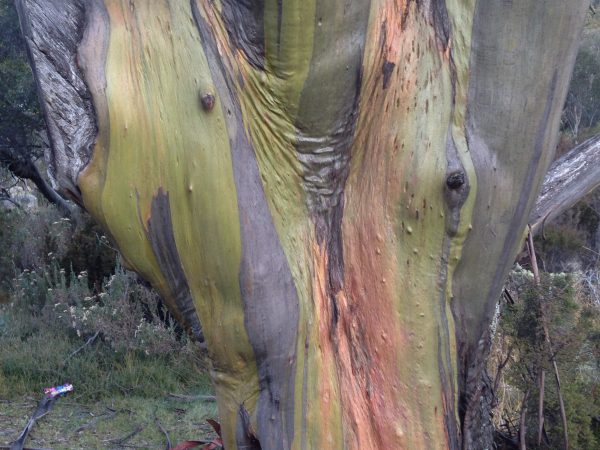Blog – Inside the Brushwood Gate, Gillian Coote
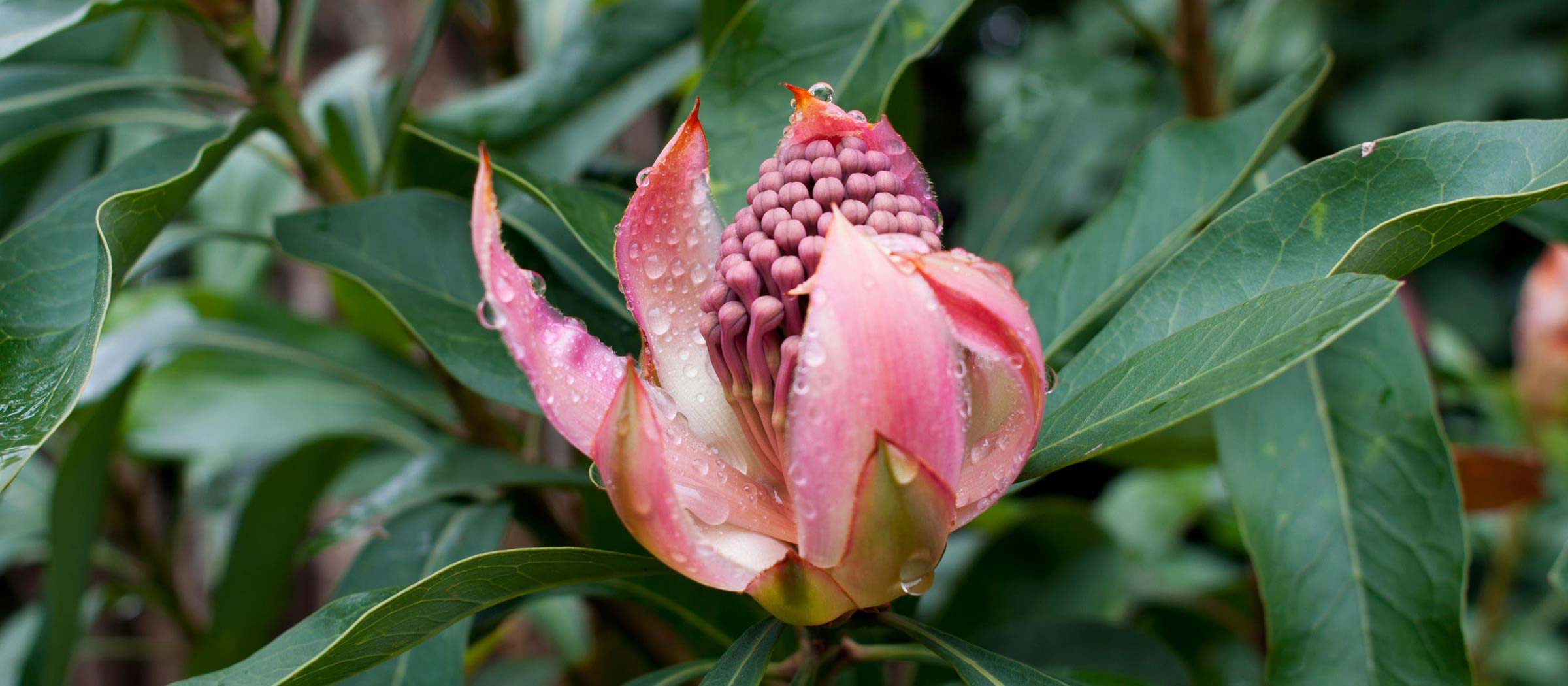
Inside the Brushwood Gate
An essay by Gillian Coote, Roshi. First published in Mind Moon Circle, Spring 2016
Yunmen said: Medicine and sickness mutually correspond. The whole world is medicine. What is the self? (1)
And at the end of the day in sesshin, we are reminded: Birth and death is the Great Matter. All things pass quickly away. (2)
Though we all know intellectually that we’re mortal, there are thousands of ways of distracting ourselves from this knowledge. Though not so many when we’re lying in a hospital bed, in the dark.
Earlier in the year, I came down with a mysterious and painful condition. Thinking I’d torn my hammie at work (translation: torn a hamstring), I went to the physio who concurred and massaged vigorously. I eventually saw the GP, who noticed my temperature and ordered blood tests. By then I could scarcely get up our stairs so when Tony decided it was time for me to go to Emergency, I had to be carted out by the Ambos and Firies, delirious.
In ICU, coming round after the operation, there were just skerricks of consciousness in the vast darkness darting about like bright little fish. I didn’t know where I was or why. I knew nothing. I expected nothing. There was nothing to be done but respond to the doctors and nurses as they asked questions, took blood, or rolled me over to check the wounds. It was timeless.
The medicos asked if I had been bitten by a spider. No. Perhaps it was an E. coli infection from one of my work sites? No. After some weeks cultivating material drained from my leg, the detective infections doctor told me it was an aneorobic bacterial infection, in other words, my own gut’s bacteria; having escaped from their usual home, they somehow burrowed through the gut wall and made inroads into my thigh and down my leg.
Once out of ICU I had no watch and the clock in my ward had long ago stopped at three minutes to seven. No time. All time. And there was the Buddha’s medicine right there. Awakening from yet another sleep breathing in, out, deep, slow, breathing mu – noticing whenever I began to think about what might be happening next, and letting it go. Projecting a future was beside the point. Breakfast would come, or not, without my having anything to do with it.
I was hooked up to a catheter, and antibiotics dripped into my veins. The strange tilting bed and the small room were my whole world. I was grateful to be alive for every quiet moment of it. Tony came each day, with news of Grace or rain. Cards and flowers arrived and I saw and felt my dharma friends’ love. My son and his family visited with strings of colourful origami cranes they’d made, which they strung above the door.
The hospital bed is a dojo, a place of practice, and sickness a Dharma gate.
There was nothing I could control. A card that Julie and the kids brought me in hospital was extraordinarily healing. On the front, a photo of a family of pied butcherbirds. When the cards opened, their song rang out. It was astonishingly moving. From that day on, I’d feel around on the shelf beside the bed in the dark, open the card and there it was, the pied butcherbird’s glorious, fluting call, my morning sutras. I played it three times each morning. I still open that card every day.
Two hundred years ago Issa heard the morning birds,
singing sutras to the suffering world.
I heard them too, this morning,
Which must mean
Since we will always have a suffering world
We must always have a song.
– David Budbill
The physios pressed me to practise walking. One day I paused in the corridor to read a sign on the nurses’ whiteboard for Anzac Day – it said: ‘Think not how unlucky I am that this thing has happened to me – but rather – how fortunate I am that it has happened to me and I have prevailed’. Yes, but who am I? What is the self?
People ask me how they can control their anxious thoughts – their doctor has suggested meditation to help them feel better. How about letting the thoughts go? How about choosing to be with the breath count, the songbirds, the traffic noise, the sad mood, the aching knees?
How about letting go, too, of any thoughts about what is medicine – because help and healing can be, are, unexpected. Though when we are right here – present – it can be hard to find something that isn’t sickness, that isn’t medicine. As our practice deepens we become more willing to be open to help, to healing and medicine – coming from anywhere. Chaou-chou said. ‘I will learn from a seven-year old child.’ Perhaps we realise that we don’t make it happen, that it’s not something that can be controlled, that we can control. It’s just that we are open. Inside the hospital, there is a nurse. There is a needle. There are flowers. The whole world is medicine.
I don’t regard my life as insufficient.
Inside the brushwood gate
There is a moon.
There are flowers.
– Ryokan
Like our own evanescent nirmanakaya bodies, the illness of the earth – our infinitely large body – is a constant dharma gate. How do the Buddhas embody their realisation and respond to its suffering – to climate change, to the endless violence between humans, to the suffering of refugees and of all beings?
Thich Nhat Hanh said, “If we maintain awareness of our breathing and continue to practise smiling, even in difficult situations, people, animals and plants will benefit from our way of doing things.” And when he talked about the Vietnamese people fleeing their country and taking to the sea in leaky boats, he said, ‘When just one person stayed calm and present, the whole boat would be saved.’
That one person who stays calm when the pirates attack is not projecting a future, or entertaining a doom-laden outcome or imagining they are in control. That one person is breathing in, breathing out, smiling, present, even in the most dire circumstances.
Enough. These few words are enough.
If not these words, this breath.
If not this breath, this sitting here.
This opening to the life
we have refused
again and again
until now.
Until now.
– David Whyte
—
Notes:
1) Case 87, Blue Cliff Record, transl. Thomas Cleary, pub. Shambhala, l977
2) Daiji-no-ge, transl. White Wind Zen Community

